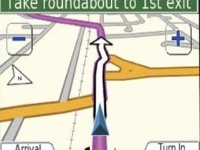-
RMR
06th Sep 2012
It's a weird mix of technology, social science, game theory, psychology, spirituality, and the mobile life. Apps that tell you what to do, but with no particular goal — sometimes referred to as "serendipity generators" — aren't useful per se. But that's the point.
As this NewScientist article says, such apps (uncertainty generators?) have a common theme: Encouraging you to try new things. Good examples are GetLostBot and Serendipitor. As you can see on Serendipitor's homepage, a typical sequence of GPS-based directions delivered to your phone goes:
1. Head south on (road) towards (landmark).
2. Follow someone until they go inside (building). Take a photo.
3. Head west on (road) for two minutes, then ask someone to give you directions to (road).
4. Walk for five minutes, then stop for two minutes.It sounds ridiculous, but after a little thinking, it makes some sense. Assuming it's a holiday today, what else would you do? If the answer is "watch TV channels, just like last week" or "nothing in particular," why not try something new? The question is genuine: It makes as much sense to do something new and meaningless (and possibly discover something) — as to do something familiar and meaningless (like flipping channels without expecting to finding a good show).
Some among this peculiar crop of apps might actually get you to find something worthwhile: GetLostBot tracks your movements on Foursquare, and if you're going to one place too often, it suggests a different place nearby.
The NewScientist article and the app homepages elaborate upon the theme of certainty/uncertainty. As our tools get more sophisticated, we're restricting our choices instead of expanding them. Online communication is a good example.
Regular exchanges on Facebook are usually with people we know; before Facebook and blogs, online friends used to happen only by chance, based on common interests — interests that weren't stated upfront. In, say, 1999, we'd come upon an interesting site and mail the author with a comment or point of debate — which would often lead to a long online friendship. No photos, no stated interests or favourite hangouts.
Paradoxically, standardised profiles mean we make fewer friends online; we choose who we want to meet. "Uncertainty apps" remind us that we're closing our boundaries more tightly as the possibilities expand.
There is, of course, a logical problem with an app like GetLostBot: Why would you follow what the bot says? Can't you think up random directions yourself?
You can. But you wouldn't, because it's silly. Hence the app: It tells you what to do, so you do it. (If you decided to use it, that is.)
That's actually a lot like TV, work schedules, and traffic — where someone else decides what actions you perform.
I'll admit it's all very confusing when you do think about it.
So what was the point of this post? Nothing, really — I wasn't trying to get anywhere with it. That's the point.
Maybe I need to get on Meetmoi.
TechTree Blog: Use An Anti-GPS App... | TechTree.com
TechTree Blog: Use An Anti-GPS App...
To go where no man has gone before.
News Corner
- DRIFE Begins Operations in Namma Bengaluru
- Sevenaire launches ‘NEPTUNE’ – 24W Portable Speaker with RGB LED Lights
- Inbase launches ‘Urban Q1 Pro’ TWS Earbuds with Smart Touch control in India
- Airtel announces Rs 6000 cashback on purchase of smartphones from leading brands
- 78% of Indians are saving to spend during the festive season and 72% will splurge on gadgets & electronics
- 5 Tips For Buying A TV This Festive Season
- Facebook launches its largest creator education program in India
- 5 educational tech toys for young and aspiring engineers
- Mid-range smartphones emerge as customer favourites this festive season, reveals Amazon survey
- COLORFUL Launches Onebot M24A1 AIO PC for Professionals







TECHTREE